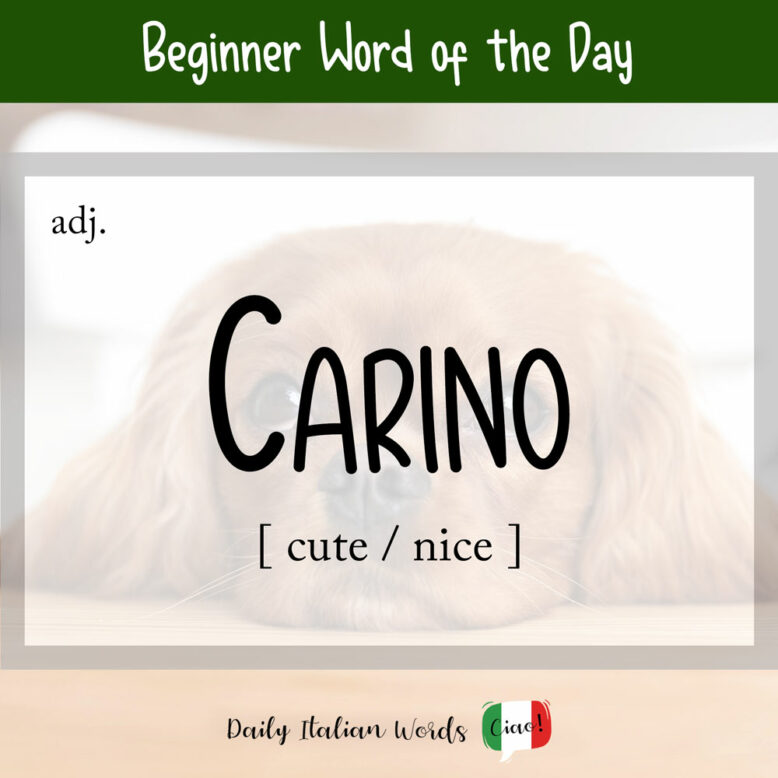An adjective you simply cannot survive without in Italian is carino. The diminutive of caro (dear), it translates in many ways including cute, pretty, nice, kind and lovely to name a few.

In Italian, adjectives always agree in gender and number with the nouns they modify. Those ending in o have four forms – masculine, feminine, singular and plural – as you can see below:
- carino = masculine, singular (e.g. gioco carino = nice game)
- carina = feminine, singular (e.g. casa carina = nice house)
- carini = masculine, plural (e.g. giochi carini = nice games)
- carine = feminine, plural (e.g. case carine = nice houses)
Carino is used very much in the same way as the word cute in English in that it describes the pleasantness of someone/something’s physical appearance. For example, a cute girl would be una ragazza carina and a cute outfit would be un vestito carino.
In order to say very cute in Italian, you can either place the adverb molto (very) in front of carino or transform it into the absolute superlative carinissimo.
Quel cagnolino è molto carino. Possiamo tenerlo?
That puppy is very cute. Can we keep it?

Let’s not forget however that carino is used just as frequently to describe the inherent nature or behaviour of someone or something. Un gesto carino for example is a kind gesture and un pensiero carino is a nice thought.
Lei è stata molto carina con me.
She has been very kind to me.
In some cases, carino can even translate as funny or enjoyable, particularly when it describes amusing stories or jokes.
Chi mi racconta una barzelletta carina?
Who’s going to tell me a funny joke?
You’ll often hear carino on its own as an exclamation to show approval or appreciation.
Carino! Me lo compro subito!
How lovely! I’m going to buy it right away!
To end off, here are a few phrases Italians tend to say a lot in conversation when they’ve been on the receiving end of a good deed or kind gesture.
- Ma che carino! = How lovely!
- Sei proprio carino. = You’re really kind.
- Ma quanto sei carino. = How kind you are.
- È carino da parte tua. = That’s nice of you.
Heather Broster is a graduate with honours in linguistics from the University of Western Ontario. She is an aspiring polyglot, proficient in English and Italian, as well as Japanese, Welsh, and French to varying degrees of fluency. Originally from Toronto, Heather has resided in various countries, notably Italy for a period of six years. Her primary focus lies in the fields of language acquisition, education, and bilingual instruction.


